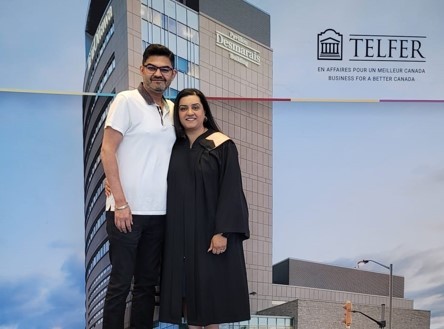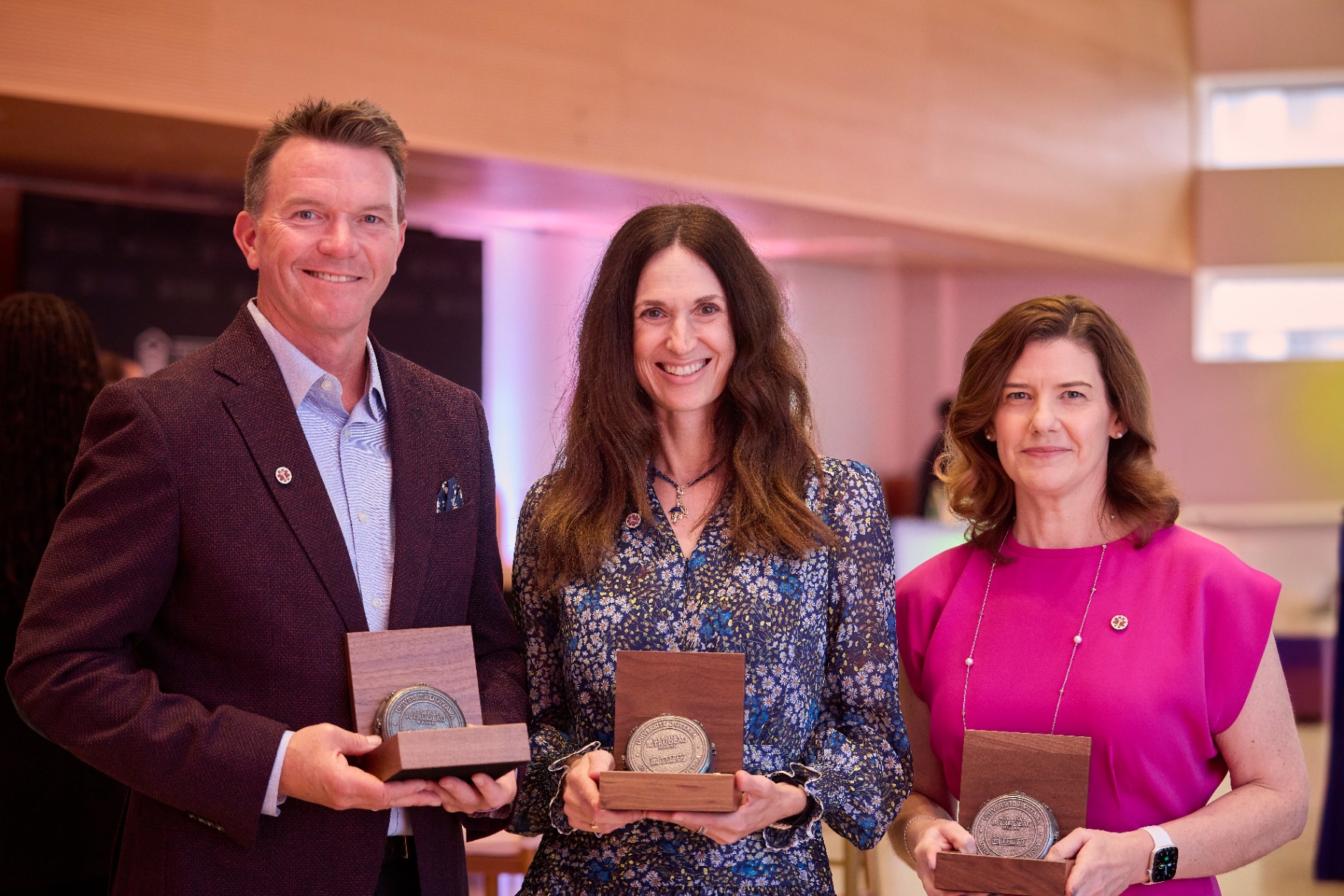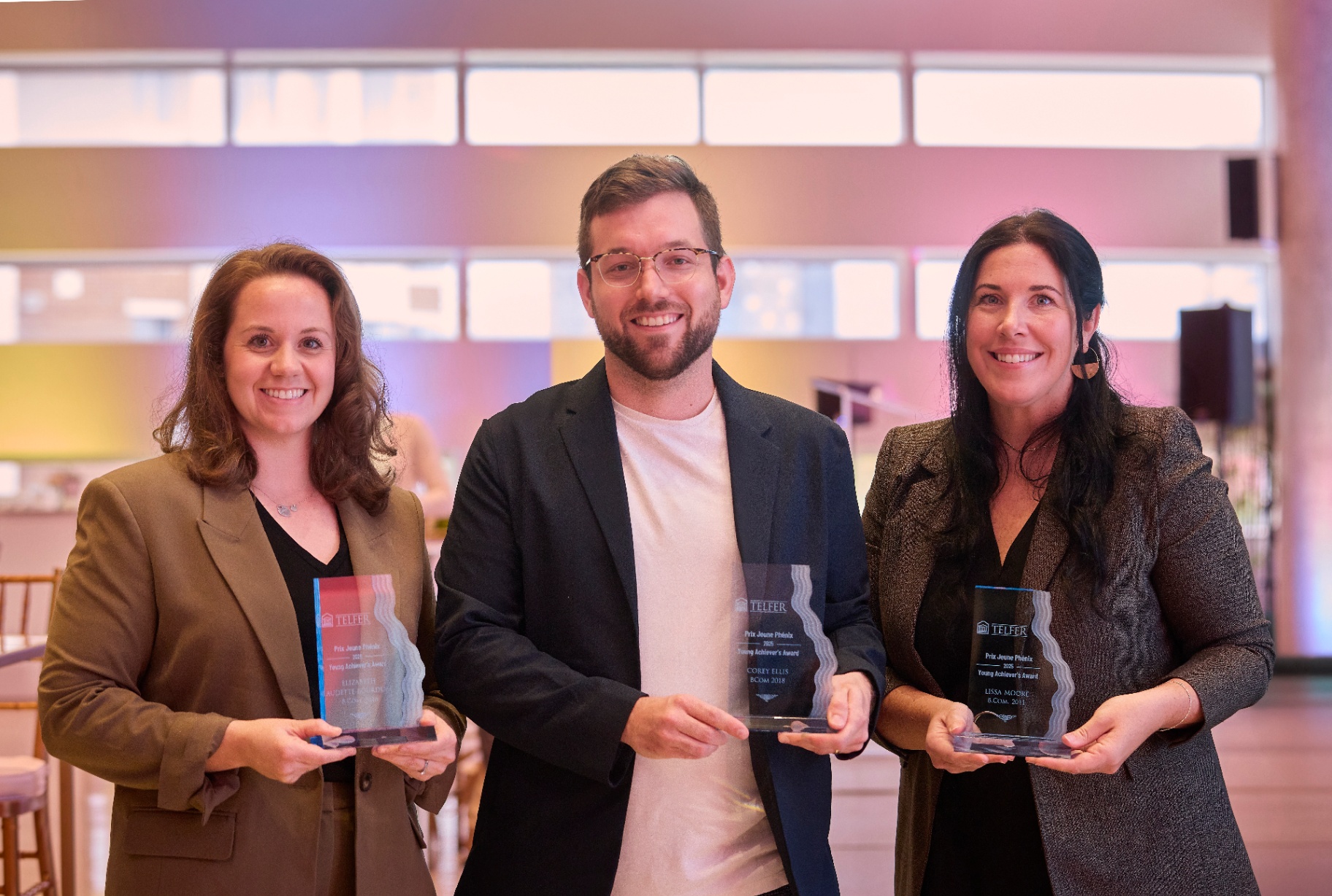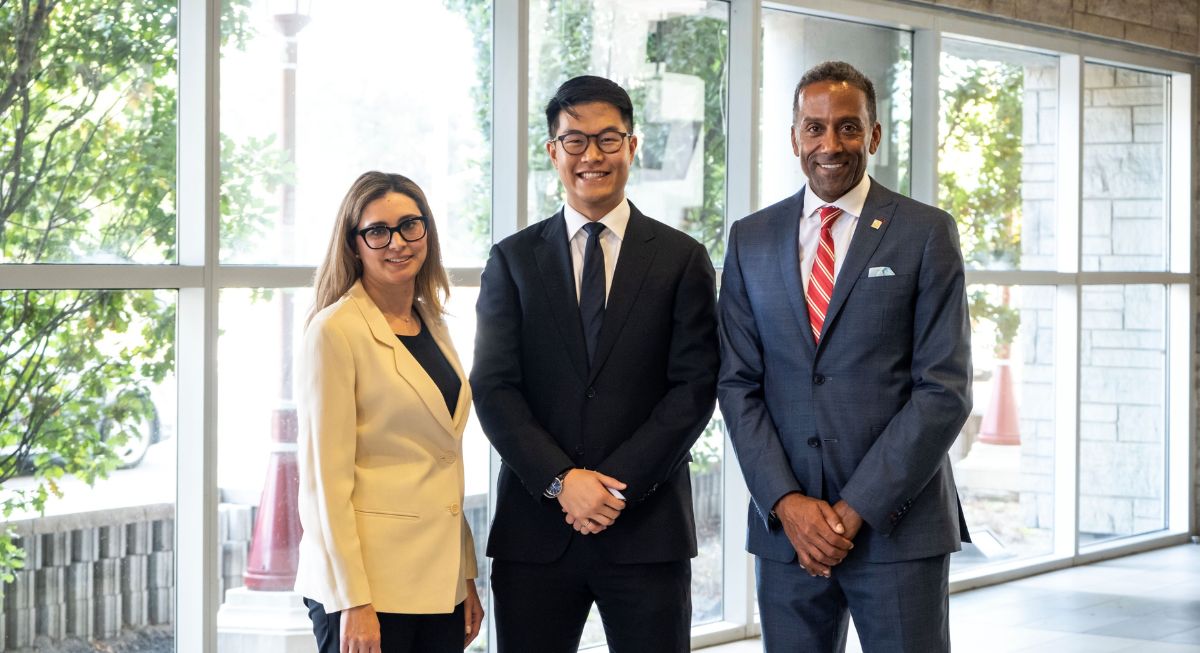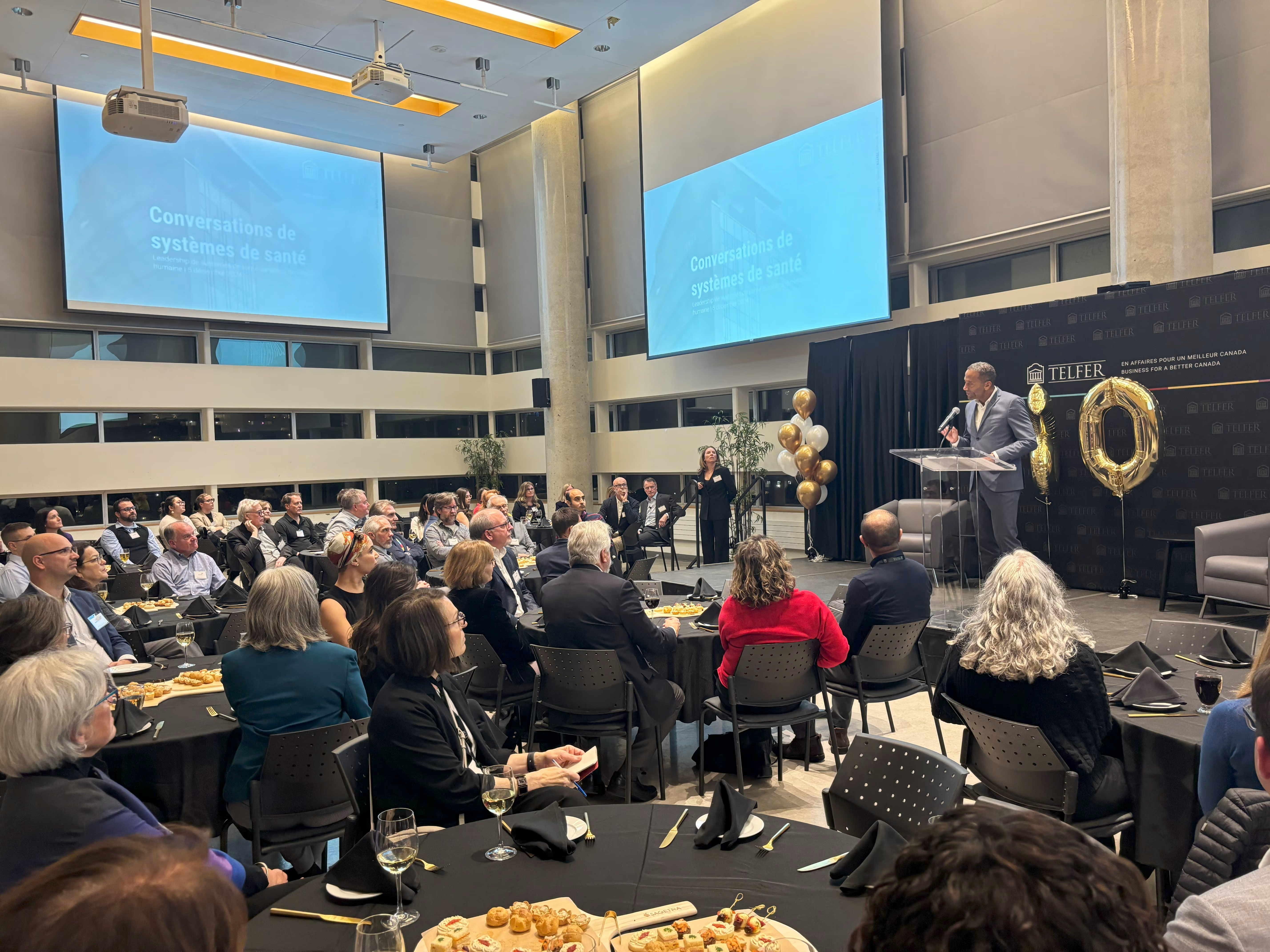Three faculty members have been each awarded a Telfer School of Management Research grant (SMRG) for projects that will address important issues in the areas of international management and health systems. Read on the learn more about the relevance, goals, and future applications of their specific research projects.
Guanxi, Knowledge Transfer, and Sino-Africa Join Ventures
In a new project entitled “Guanxi as a facilitating tool for knowledge transfer in China-Africa joint ventures”, Assistant Professor Abdoulkadre Ado will examine the role of powerful social networks “or Guanxi” in facilitating knowledge transfer from Chinese organizations to businesses in Africa. He believes knowledge transfer could establish long-lasting fruitful partnerships between China and Africa and enhance joint ventures’ success.
The Sino-African business momentum
Trade relationships between China and Africa are unprecedented and have a major impact on African economies. As an example, the Chinese government offers many opportunities for Africans to gain knowledge and skills through scholarships and vocational training in China. Immersed in a new business culture, Africans quickly learn about guanxi. These powerful social networks establish a form of moral obligation between individuals and instil a commitment to mutuality and trust.
Upon their return to their home countries, African trainees who form these networks in China can become invaluable assets for African organizations. They become instrumental in transferring this new knowledge in the organizations and building new partnerships with Chinese businesses.
What’s this project about?
Professor Ado has been awarded a new SMRG to further understand the value and impact of guanxi. Very few studies have directly examined the role of the guanxi asset on the formation of joint ventures between African and Chinese partners and the knowledge transfer that results from these partnerships. Ado’s research will focus on three major African countries involved in China-Africa joint ventures: Ethiopia, Kenya, and Tanzania.
How can EPIC implementation affect medical residents’ training and patient satisfaction with care?
In a project entitled “A pre-post evaluation of Epic implementation impacts on Medical Training and Patient Satisfaction,” Associate Professor Mirou Jaana will explore the impacts of EPIC, a health information system that will be implemented at several health care organizations in the Ottawa region. This system will create electronic medical records for patients that are shared across a digital network of health care providers.
Why EPIC impacts evaluation?
Electronic medical records (EMRs) offer major opportunities to improve timely access to medical information and operations in health care organizations (e.g., improving workflow of patients, reducing test duplications etc.). Six health care organizations in Eastern Ontario are currently implementing a comprehensive health information system from EPIC, which will allow them to have timely access to EMRs and share patient information across different sites and health care providers.
Despite the promise for improving medical decisions and patient care, the implementation of EMRs may face challenges that can compromise the expected benefits of these systems, particularly at the physicians and patients’ levels. To this date, little is known about how EMRs affect the training of medical residents, and the overall patient experience and satisfaction, in light of the increased amount of information available and the intense technology use during the care process.
What’s this project about?
A rigorous evaluation of EMRs such as the EPIC system can support health care organizations in identifying risks and challenges at early stages and developing effective mitigations strategies to address them. Understanding the importance and need for such an evaluation, Professor Jaana will examine the impacts of EPIC on medical residents’ training and activities, as well as patients’ overall satisfaction and experience with the care they receive at one of the hospitals implementing this system in Ottawa, the University of Ottawa Heart Institute ( UOHI). The researcher will survey medical residents and patients visiting the UOHI prior to and after the deployment of EPIC. Her goal is to evaluate how the new system will affect medical training and patient satisfaction.
IMPROVING THE DESIGN OF HEALTH SERVICE PLATFORMS THROUGH BETTER ARCHITECTURAL MODELS
Assistant Professor Lysanne Lessard and her collaborator, Associate Professor Mark de Reuver (Delft University of Technology), will undertake a case study to better understand how the architecture of health service platforms can be organized and ultimately help health providers improve the effectiveness of these platforms.
Developing Specific Architectures for Health Service Platforms
Health service platforms (HSPs) are digital platforms used to facilitate new ways of delivering healthcare to improve care effectiveness and efficiency. They are becoming increasingly popular in the health care system as these platforms can offer low cost, high clinical value, and varied applications. While these platforms have been used to improve health services like remote patient care and monitoring, HSPs need to be adjusted and tailored to the diverse specifications of the services they support. HSPs similarly need to be designed in line with the intentions of health professionals and patients who use these platforms.
The architecture of a platform refers to the way in which the platform’s components are organized. Technologically, platforms allow to easily change their components (e.g. applications), and the technology used by these components. However, traditional architectural models for digital platforms were created with commercial goals in mind. Decisions about what to change to achieve a given objective are based on the desire to attract third-party developers that will create innovative apps, make them available through the platform, and in turn attract more users to the platform.
“While HSPs rely on the same technologies, their purpose is not the same. Health providers seek to improve health outcomes for platform users, not to increase their revenue through increasing the number of patient users. Thus, any decision regarding how to change the platform should be based on its impacts on desired health outcomes,” says Professor Lessard.
What’s this project about?
Health providers who wish to integrate HSPs within their organizations lack the tools that could help them identify what should be part of their HSP structure and how it should be organized so it reflects their perspective and meets their desired health outcomes. A study led by Professor Lessard is a first step towards creating such tools. The project will focus on a case study of an HSP that supports remote patient care and disease prevention.
Who will benefit from your research insights?

"The knowledge gained from joint ventures with Chinese partners could be invaluable in improving African business capabilities and safeguarding Africa’s economic success. The outstanding economic growth rate in Africa is also appealing to potential international partners. Thus, a better understanding of how Africans gain knowledge from Chinese organizations can also help other foreign partners improve their business negotiations in Africa."

“I’m hoping that the insights gained from this research will fuel a broader-scope evaluation of the EPIC system in multiple health care organizations over time in Ottawa and across the country. This is equally beneficial for the research and practice community given the wealth of data and information that will be available at our hands in these real environments undergoing major changes in the ‘blueprint’ of their care delivery. There is a lot to learn from the experience of each health care organization undertaking this digital transformation, and knowledge sharing is essential to avoid reinventing the wheel with each new project.”

“I plan to share the insights gained from this project and their implications to the organizations involved in the case study. These results could support these organizations in better identifying and addressing the architectural requirements for HSPs and better integrate them into the always evolving health care system.”

